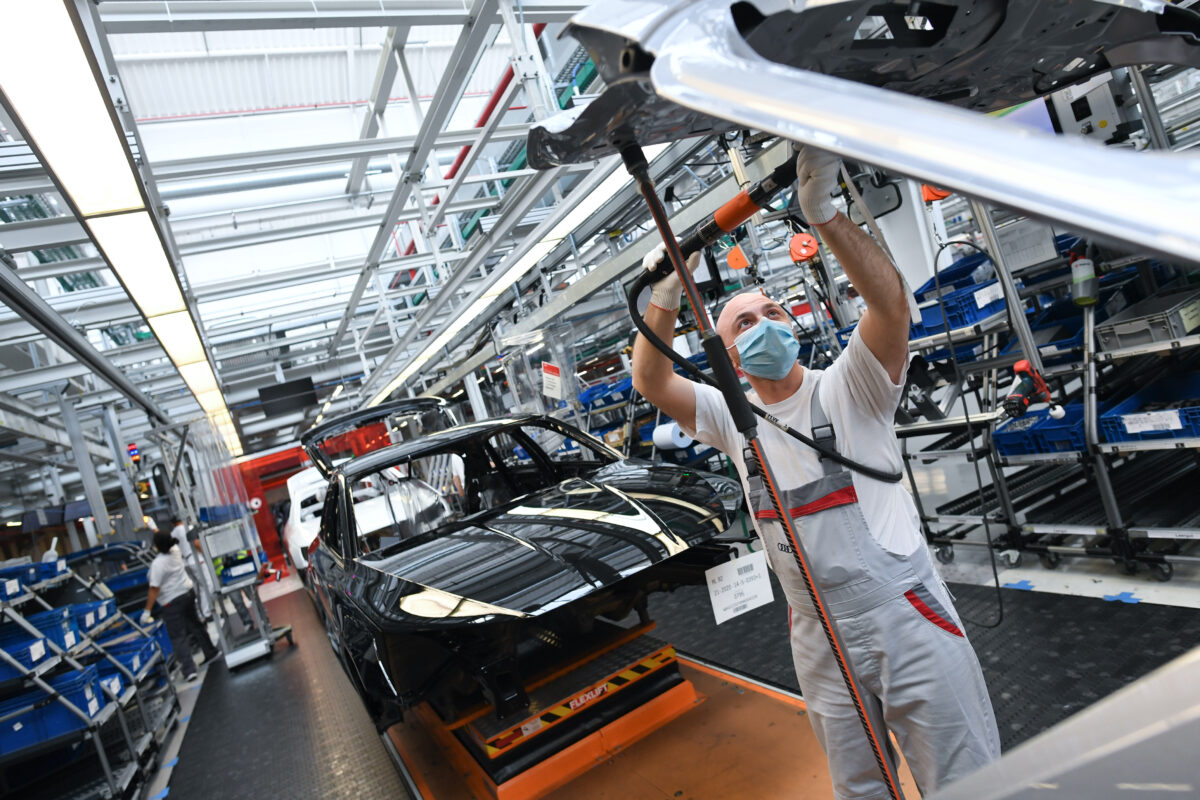
German Recovery From COVID-19 Will Be Slow and Painful, Data Shows
BERLIN—German industrial orders rebounded moderately in May, and a fifth of firms in Europes biggest..
BERLIN—German industrial orders rebounded moderately in May, and a fifth of firms in Europes biggest economy said in a survey published on Monday they feared insolvency, adding to expectations of a slow and painful recovery from the coronavirus pandemic.
Germany has withstood the pandemic better than other big European countries, recording fewer COVID-19 deaths, and its economy has been relatively resilient during more than six weeks of lockdown owing to generous stimulus packages and a decision to keep open factories and construction sites.
But data showing that industrial orders had risen by a record 10.4 percent during a month when restrictions were gradually lifted, almost a third less than forecast in a Reuters poll, dashed hopes of a quick return to pre-crisis business activity.
“The orders data signal that the manufacturing sector recession has overcome its low point,” the Economy Ministry said. “But the low level of orders also shows that the recovery process is far from over.”
Order intake was 30.8 percent lower than in February, before lockdown measures were imposed a month later to slow the spread of the coronavirus, and almost 30 percent weaker than in May 2019.
Fears of a slow recovery were compounded by an Ifo economic institute survey showing that 21 percent of firms fear the pandemic could force them to shut down, adding to expectations that mass insolvencies in the coming months will hamstring the economy.
Boosting Demand
The services sector is most affected, Ifo said. Some 85 percent of travel agents and tour operators said they were threatened with insolvency, followed by 76 percent of hotels and 67 percent of restaurants.
The government wants to revive the economy by boosting consumption through lower rates of value-added tax for the second half of the year and a one-off stipend for parents.
It has also rolled out short-time work, a form of state aid designed to encourage companies to keep employees on the payroll during a downturn, which has helped stabilising the labour market.
The picture is no better for Germanys export-oriented manufacturers, which had faced declining demand before the pandemic resulting from trade disputes between the United States and China, uncertainties linked to Britains departure from the European Union anRead More – Source

